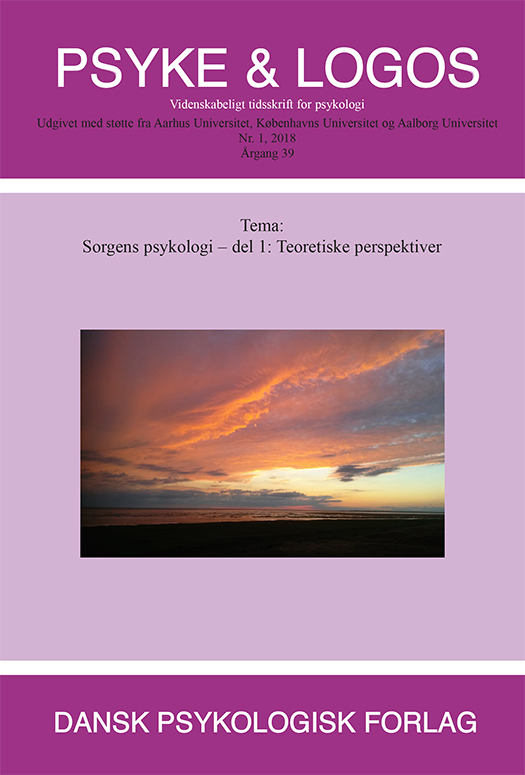Cultural and existential perspectives on experiences of grief and bereavement
DOI:
https://doi.org/10.7146/pl.v39i1.112161Keywords:
sorg, sorgforskning, tabserfaringerAbstract
Throughout past decades, research on grief and bereavement has migrated towards a more quantitative research agenda; i.e. scales for identification of
normal and complicated grief reactions, symptoms of grief, and the consequences of bereavement on health outcomes, etc. This tendency towards a
more quantitative research paradigm has been simultaneous with a noticeable break with traditional theories on grief, which have been criticised for
not being eligible for empirical validation. On the productive side, this approach has provided the basis for the emergence of new empirically based
models, such as Margaret Stroebe and Henk Schut’s dual-process model of coping with bereavement. While this development in many ways has contributed
to a revitalisation of research on grief and bereavement, it is significant to notice that its specific methods and focus does not adequately address important cultural and existential dimensions of grief. Through The Culture of Grief research project, we specifically aim to address
these cultural and existential dimensions on a conceptual and empirical level. In this article, we present the background for this research agenda and
introduce some significant ideas guiding this work. Concretely, we start out by accounting for the process through which research on grief and bereavement
has gradually adapted to a quantitative research paradigm. On this background, we then draw out a basic outline of the guiding ideas behind The Culture of Grief. Finally, we aim to provide body and concreteness to this by presenting eight theses guiding our various approaches.
Downloads
Published
How to Cite
Issue
Section
License
Ophavsret er tidsskriftets og forfatternes. Det er gældende praksis, at artikler publiceret i Psyke & Logos, som efterfølgende oversættes til andet sprog, af forfatteren frit kan publiceres i internationale tidsskrifter, dog således at det ved reference fremgår, at den oversatte artikel har et forlæg i en dansksproget version i Psyke & Logos. Artikler kan frit deles og linkes til på forsknings- og undervisningsnetværk (så som Blackboard). Link foretrækkes, fordi det giver oplysning om brug af tidsskriftets artikler.




